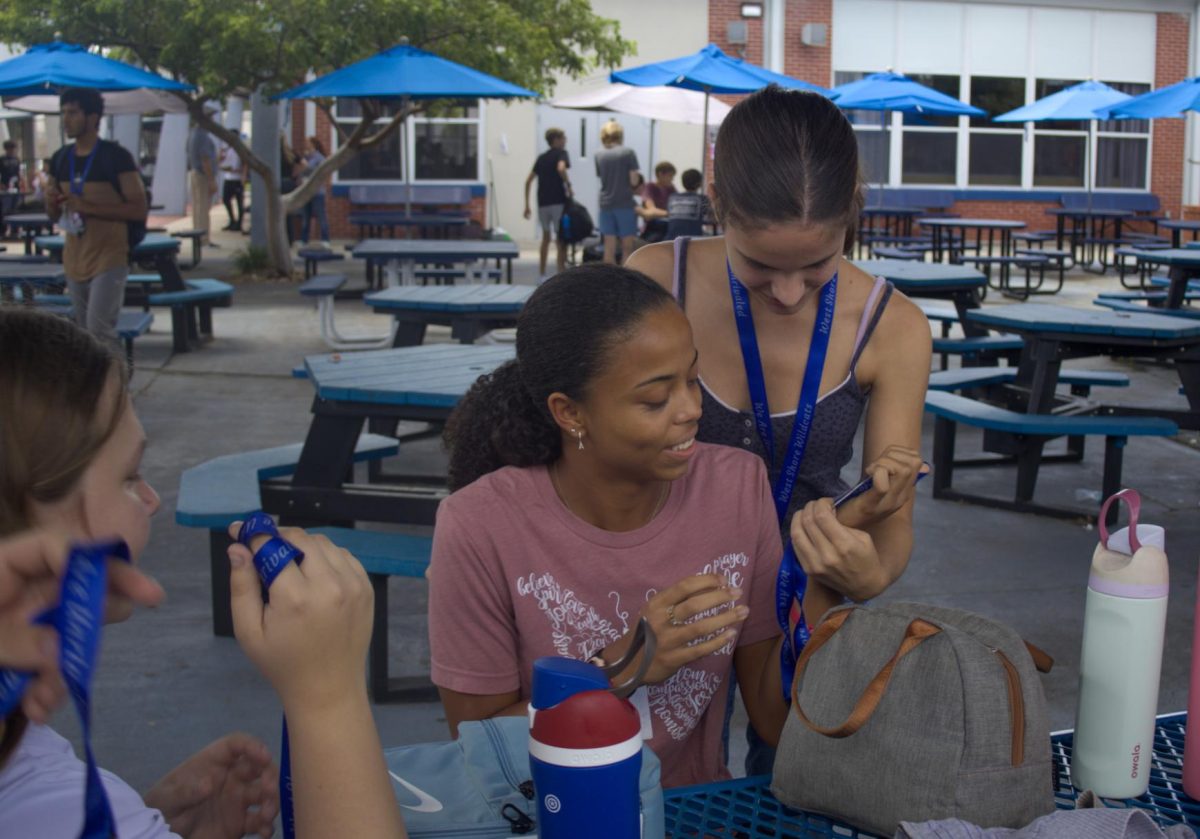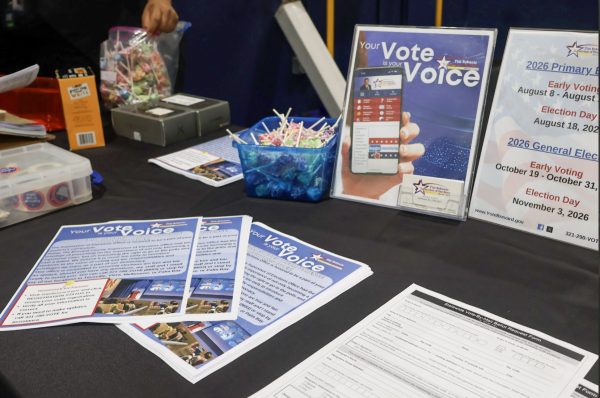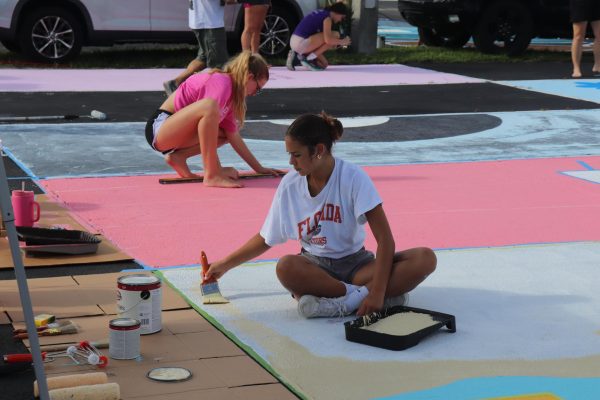Breaking the college cycle
Rethinking a higher education could be beneficial
Senior Katie Perez tours the University of Colorado Boulder in December over Winter Break.
Thirteen years of most childhoods are spent in school. Children as young as five are pushed through the system until they come out of their senior year as young, naive adults, completely dependent on other people. For a lot of young people, school is all they know. It is all that we as a society are taught to do with our youth. It’s the safest path. So, very literally, people grow up in this system. They experience all of what life has to offer — or so they’ve been told.
Education is a necessary part of life. The ability to read, write and solve basic math problems is taken for granted every day. Although I never plan on using the quadratic formula or analyzing a Shakespearean tragedy ever again, that doesn’t invalidate the wonderful people who work tirelessly to teach me. That doesn’t change the fact that I have school to thank for at least a portion of my common sense and ability to think semi-critically. However, at some point it is no longer helpful to pressure me into cramming random, filtered facts into my head for one night, to test how accurately I can regurgitate those things the next morning.
For some people, the high-risk, low-reward and superficial environment is just what they need to succeed. But I do not think that school can adequately prepare most people for their future. The standards set for students are often extremely subjective and account for too much of what’s considered their “success.” To be intelligent is not to simply be compliant. Anyone who wants to can study a list of elements in a chemistry class. But to have to prove someone’s ability to do so is ineffective and often does not align with actual ability. This should not be the determinant of what someone is capable of. Unfortunately, some people have their sense of self-worth so entangled with this external factor that they cannot differentiate between their own desires and those of others. They are taught to strive for the appearance of perfection, but as soon as an “A” is marked in the books, few could care less about what the student has actually gained.
Phrases like “I hate this,” “I don’t want to be here” and “Why am I doing this?” roll off the tongue so frequently, that at this point, they almost go without notice. How can it be so normal to “hate” five days out of the seven-day week? This kind of dissatisfaction does not stop after high school. Everyone is conditioned to follow a strict system that, at its core, ensures most peoples’ bare necessities are met. Other options are not typically discussed. You go to high school to get your diploma as proof that you passed. You go to college to earn a degree. You use that degree to get a job and pay off all of your college debt. You save up and eventually buy a house and have a family. You work five days a week, every week, with a few vacation days sprinkled in here and there if you’re lucky. You have kids and work the same job, just to repeat the process for them in order to meet society’s standards. It’s a scary cycle because it seems impossible to break. Just to exist requires money. And to exist comfortably requires even more.
There are obviously many benefits to this plan, financial freedom being one of them. There is nothing wrong with choosing to go down this path, but like The Beatles said, “Money can’t buy me love.” And a nine-to-five job won’t either. Living to work is I’m sure what some people strive for. It’s what makes them happy. I also know that is not the case for everyone, but the implication is that it should be. People so rarely discuss alternatives to the traditional path that it’s laughable for students to even bring them up. It can be hard to be taken seriously as a kid no matter what you are doing, so going outside of the norm presents myriad challenges.
I do not think that college should be pushed onto kids as much as it is. Fresh out of high school, most people simply don’t know enough about themselves to make an informed decision about what they want to do for the rest of their lives. There is such a stigma around people who choose not to go to college, but it’s not always the best option. I know that for me, picking a major to commit to would end in disaster. There is nothing that if I were forced to work at in a school, I wouldn’t start to hate. And the idea of doing the same thing every day for the rest of my life is terrifying.
According to the National Center for Education Statistics, 80 percent of students in college change their major at least once, and student loan debt is over $1.7 trillion. In addition, according to the Federal Reserve Bank of New York, only 27 percent of college graduates work in the same field as their major.
Life is too short to be spent doing something you are not passionate about. Find something you love to do, and figure out how to monetize it in a way that makes you happy.
Oscar Wilde, an Irish poet in the 1800s said, “To live is the rarest thing in the world. Most people just exist, that is all.” Life has so much to offer. There are so many beautiful things to experience, and the last thing I want to do is make myself busy with paperwork and deadlines. You can always go back and get your degree once you’ve learned more about yourself and what you want to get out of the whole thing. But blindly flinging yourself into college without a valid motive happens too often. You are never going to get your youth back, so make the most out of it while you can.

This is my second year writing for the Roar and I’m stoked to start producing quality content. Newspaper is definitely my favorite publication. I am...


![Sophomore Isabelle Gaudry walks through the metal detector, monitored by School Resource Officer Valerie Butler, on Aug. 13. “I think [the students have] been adjusting really well," Butler said. "We've had no issues, no snafus. Everything's been running smoothly, and we've been getting kids to class on time.”](https://westshoreroar.com/wp-content/uploads/2025/08/IMG_9979-1200x800.jpg)









































